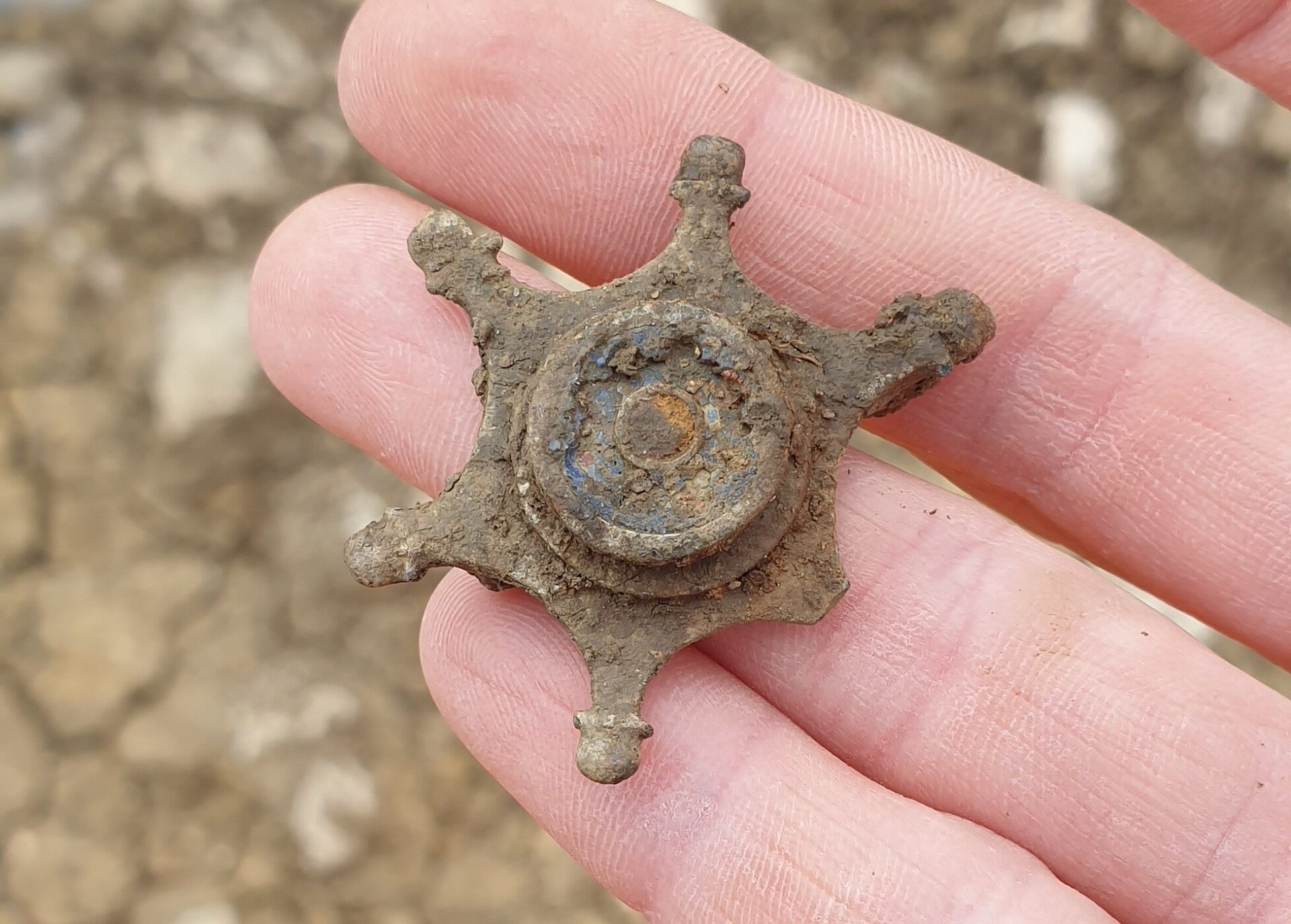Archaeologists reveal life of small Roman town in Fleet Marston near Aylesbury, UK.
Excavations are part of HS2’s archaeology programme, where archaeologists uncovered a series of enclosures that contained evidence of domestic structures, as well as commercial and industrial activity.
These enclosures developed in a ladder-like plan either side of Akeman Street, a major Roman road that linked the Roman capital of Verulamium (modern St Albans) with Corinium Dobunnorum (now Cirencester) and going via Roman Alchester (near Bicester).
Excavations also unearthed over 1,200 coins, several lead weights, spoons, pins, brooches, gaming dice and bells.

Apart from being home to many inhabitants, the settlement is likely to have been an important staging post for travellers and soldiers passing through Fleet Marston on their way to and from the garrison at Alchester.
Nearby the team also discovered a late Roman cemetery which contained around 415 burials, predominantly inhumation burials but also some cremation burials.
The number of burials, along with the development of the settlement, suggests that there was a population influx into the town in the mid to late Roman period, linked perhaps to increased agricultural production. There are two separate areas of burials suggesting the cemetery may have been organised by tribe, family, ethnic grouping.
Richard Brown, Senior Project Manager for COPA said: “The excavation is significant in both enabling a clear characterisation of this Roman town but also a study of many of its inhabitants. Along with several new Roman settlement sites discovered during the HS2 works it enhances and populates the map of Roman Buckinghamshire.”
Header Image – Roman brooch uncovered during archaeological excavations at Fleet Marston, near Aylesbury, Buckinghamshire. – Image Credit : HS2





